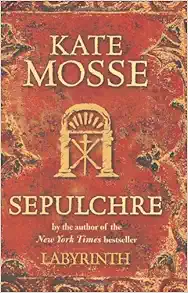
Description
From Publishers Weekly Contrivance, cliché and expository overkill overwhelm bestseller Mosse's tale concerning a rare tarot deck that helps link the lives of two women living eras apart. In 1891, Parisian teenager Léonie Vernier and her brother visit their young aunt at an estate in southern France. After finding a startling account of her late uncle's pursuit of the occult, Léonie scours the property for the tarot cards and Visigoth tomb he describes, unaware that more tangible peril in the form of a murderous stalker is seeking to destroy her loved ones. Present-day biographer Meredith Martin is in France finishing a book and tracing her ancestry when she sees a reproduction of the same tarot, which bears her likeness. She investigates the connection when she, too, arrives at the estate, now a hotel in which a new battle between good and evil rages. Mosse ( Labyrinth ) conveys so much unnecessary information through so many static scenes of talk, reading and interior monologue that the book's momentum stalls for good soon after its striking opening. Mosse's fans will hope for a return to form next time . (Apr.) Copyright © Reed Business Information, a division of Reed Elsevier Inc. All rights reserved. Kate Mosse is the cofounder and honorary director of the prestigious Orange Prize for Fiction. A fellow of the Royal Society of Arts, she is also a highly regarded television and radio host. From The Washington Post Kate Mosse has capitalized on the success of Labyrinth with a new novel boasting similar elements: strong female heroines, dual narratives connected across a vast span of years, the villages of southwestern France and even a search for historic artifacts. But this time it's a quest for family secrets -- not a treasure hunt -- that binds the twinned tales. In 1891, 17-year-old Léonie Vernier simply can't understand her older brother, Anatole, and his extreme sensitivity about his private life; she never met his last lover but does try to ease his grief at the woman's burial during the book's opening scene. So when the siblings are invited six months later to visit Domaine de la Cade, the country estate of recently widowed Aunt Isolde, Léonie anticipates some quality time with Anatole -- and a chance to catch up on her macabre reading. She discovers "stories about devils, evil spirits and ghosts associated with this region" and explores a creepy old sepulchre on the estate's grounds. But stolen glances between Anatole and their surprisingly beautiful aunt leave Léonie feeling the odd woman out. Worse, she's ignorant of a greater danger lurking behind the pair's secretiveness: a lover from Isolde's past -- spurned, duped and now hell-bent on revenge. Shift to 2007: Meredith Martin takes a break from researching her biography of composer Claude Debussy to delve into her own family history. She's led by an old photograph and a piece of sheet music titled "Sepulchre 1891" to visit -- you guessed it -- the Domaine de la Cade. En route, she stops for a Tarot reading and finds the spitting image of herself on the face on one of the cards -- La Justice, of course. Once she arrives at the ancient estate, she becomes embroiled in a contemporary mystery involving the "accidental" death of one of the domaine's co-owners. Mosse achieves an admirable completeness here -- not just in the dual stories' tight parallels but in the vividly rendered settings, the careful interweaving of historical detail, even the nuanced depictions of these characters, particularly Léonie. But despite Mosse's stylistic skill, the story skirts dangerously close to cliche -- figures lurk in distant shadows, the wind whistles, storms rage. At least four major incidents take place on Halloween, and just when you think the book has everything but a mob of angry villagers, you get that too: "on the distant horizon . . . a line of flaming torches, gold and ochre against the black night sky." All of this might seem damning if Sepulchre weren't such a giddy read. Throughout, Mosse intertwines her literary influences and the story at hand as playfully, intricately and suspensefully as she melds the material and the supernatural, past and present. Everything intersects in a goose bump-inducing finale at the sepulchre, which bears an inscription warning all who enter: "Fujhi, poudes; Escapa, non." (Flee, you may; escape, you cannot.) But really, with a book this much fun, who would want to do either? Copyright 2008, The Washington Post. All Rights Reserved. Read more
Features & Highlights
- Conducting research in southwest France, American graduate student Meredith Martin finds the grand old hotel where she is staying eerily familiar and experiences strange dreams and visions about a sister and brother whose visit to the same region a century earlier had unexpected otherworldly consequences. By the author of Labyrinth.





